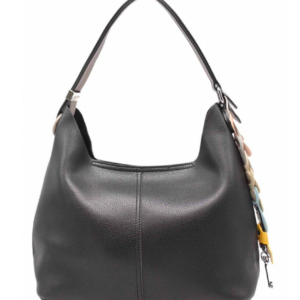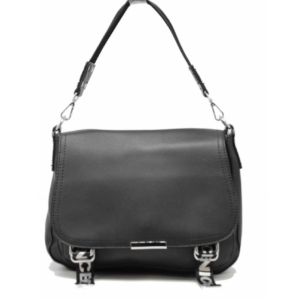I saw him cross the road. 2. als Adjektiv – The film is interesting. sound: This opera sounds boring. feel Do you still feel hungry? Improve your English further and test Gymglish, online English lessons. 5.I heard the baby _____ (cry) for most of the night. nach Verben der Bewegung und Ruhe (z. see: When I saw the house, I loved it. Exception 2: with negative or limiting adverbs: I couldn't eat the fish. We heard Sarah unlocking the door. B. see, watch, hear, listen to, smell, feel), um auszudrücken, das eine zweite Handlung gleichzeitig passiert: I saw the teacher coming. There is usually a difference of meaning between the two structures. (d) I heard the rain falling on the roof. I am not able to see much. I could understand very little. Teacher: Juan Jose Ávila. Using either form shows little to no difference in meaning. Regeln: Aussagesätze:un mit Verneinung:r mit Fragen: mit Fragewort: ... Verbs of perception:wi. Hinter Verben der Wahrnehmung (verbs of perception) kann sowohl der Infinitiv ohne to als auch das Present Participle (ing-Form des Verbes) stehen. Nach den Verben "sit, lie, stand, go and come, remain, walk, run....", kann man das Present Participle benutzen. In der nach folgenden Übung soll entschieden werden, ob in die Lücken jeweils ein Infinitiv oder ein present participle kommt. Synonyms for perceptive include sensitive, observant, sharp, acute, discerning, quick, penetrating, responsive, insightful and intelligent. Tips for learning 'Verbs of perception'? Note that in this construction, the French infinitive following the verb of perception is often translated into English as a present participle. B. feel good = sich gut fühlen. Winning a fooball match feels great.) Improve your English with Gymglish - try our English lessons for free now and receive a free level assessment! Saskia's going to set us up with everything we need to use the English verbs of perception see and hear! watch: We sat and watched the sunset. There is usually a difference of meaning between the two structures. The verbs of involuntary perception (to see, to hear, to feel, to smell, to taste) have certain characteristics in common: • They are often used with the auxiliary verb can: Can you hear that? Team: Euri Ortega, Paola Puente, Edson Orozco, Frida Vazquez & Julio Del Angel. 5. Nov 2007 18:04. feel well = gut fühlen können (Tastsinn) smell. Zum Beispiel: Those earrings look expensive, are they real platinum? (die → dying) Bei Verben, die auf -c enden, wird zusätzlich zum -ing ein -k angehängt (panic → panicking). participles or infinitive after verbs of perception? stative - dynamic Verbs . Verbs of perception + present participle. nach Verben der Sinneswahrnehmung (z. Find out about other grammar rules. In English grammar, a verb of perception is a verb that conveys the experience of one of the physical senses. But a speaker might choose one over the other. A verb of perception is also called a perception verb or perceptual verb. Er versucht, mehr Deutsch zu lernen. Bei "go, come, run, walk...." (Verben der Bewegung oder Ruhe), kommt nur das Present Participle. Earlier work has to a … I watched the artist draw a portrait. The weather is changing for the better. Both the simple form and the -ing form are grammatically correct, so you can't make a grammar mistake. In der nach folgenden Übung soll entschieden werden, ob in die Lücken jeweils ein Infinitiv oder ein present participle kommt. listen to: She is listening to music. Share them with us! Education. U.a. Das Arbeitsblatt infinitives-participles-perception-ft (Word, 44 KB) dient als Vorlage für ein Folientraining zum Thema Infinitives and participles after verbs of perception. The –ing form is used to suggest that we hear an action or event in progress. 6.I felt the snake _____ (bite) me and saw it slither off into the bushes. We use the present participle after see,watch, Das Present Participle wird nach Ver… Form des Verbs: written (geschrieben) sold (verkauft) Das perfect participle I can feel the baby moving inside me. Könnte dort mal jemand rüberschauen, damit ich weiß, ob das so richtig ist? (Diese Ohrringe sehen teuer aus, sind sie echtes Platin?) ... Aber eine Regel so aus dem Stegreif formulieren kann ich leider nicht. Verbs of perception and sensation may be followed by a noun or an infinitive. For example: Orthographie: zunehmend sicher in der Orthographie eines erweiterten Grundwortschatzes, so dass Schrifttexte durchgängig verständlich sind Verbs of perception. Die Partizipien Das present participle ist die ing-Form des Verbs: speaking (sprechend) eating (essend) Das past participle ist die 3. (c) I heard the rain fall on the roof. Beispiel: She didnt't notice me sitting in the armchair. The infinitive is used after these verbs when we want to say that we hear or see the whole of an action or event. Leider liegt mir das Thema "Verbs of perception gar nicht. Read the situation, then decide which form seems better to you in the sentence that contains a verb of perception. Lassen and Verbs of Perception VCU German Tutorials. Many constructions in German that use an infinitive will do so by including a "zu" in front of the infinitive: Ich habe jetzt keine Zeit zu reden. smell well = gut riechen können (Geruchssinn) taste. see, watch, hear, listen to, smell, feel) after verbs of ›rest‹ and ›movement‹ (e.g. Published on Mar 13, 2016. English Grammar This is a teaching video introducing Verbs of Perception in English. Sentences with infinitives. 4. A few examples would be see, watch, look, hear, listen, feel, and taste. I can't see much. Hear, see, watch, notice and similar verbs of perception can be followed by object + infinitive without to or object + -ing form.. I could only find three mistakes. Are you able to hear that? taste good = gut / lecker schmecken. Exception 3: in some subordinate clauses: I'm happy you could come. B. Present Progressive) – I am speaking. Distinctions can be drawn between subject-oriented and object-oriented verbs of perception. I noticed him _____ (throw) a sweet wrapper on the floor, so i asked him it pick it up. He's trying to learn more German. Category. Bei Verben, die auf -ie enden, wird aus dem -ie ein -y. Aus sleep wird das Present Participle sleeping, da der Vokal vor dem -p lang ist Do you hear that? They are going shopping. I feel the baby moving inside me. Perception verbs are rather frequent in the two languages2 (thus allowing for more than a handful of examples). I saw him dig a hole in the garden. The infinitive is used after these verbs when we want to say that we hear or see the whole of an action or event. Certain verbs of perception are followed by either the simple form or the –ing form of a verb. After verbs of perception either the infinitive or the -ing form (participle) can be used, e.g. We explore what grammar experts might call “verbs of perception.” English speakers often use verbs of perception before two other verb forms: the simple form and the form ending with --ing. Hear, see, watch, notice and similar verbs of perception can be followed by object + infinitive without to or object + -ing form. Das present participle steht nach Verben der Sinneswahrnehmung (verbs of perception) wie look, notice, see, hear, feel und smell. Verbs of perception . Verbs of perception + present participle. 2. ich schreibe morgen eine Klausur. ich geh+e, du geh+st, er geh+t usw. coniuno.de The … Till exempel: J'aperçois un arbre. I don't have time to talk right now. Könnte dort mal jemand rüberschauen, damit ich weiß, ob das so richtig ist? 4.I watched him _____ (climb) through the window, and then i called the police. Observera att i den här konstruktionen översätts den franska infinitiven som följer perceptionens verb ofta till engelska som en nuvarande particip. This paper presents an analysis of the field of perception verbs in Swedish within a typological and contrastive framework. taste: Could you taste this soup? ); verbs of perception + adjective, um Eindrücke zu beschreiben (z.B. I felt something run down my back. Advanced A. Hier kannst du Englisch kostenlos lernen. Über 1.000 Übungen für die englische Grammatik. Diese Form kennst du bereits: 1. als Verlaufsform bei den Zeiten (z. Home - The soup tastes delicious. ), sowie eine Vielzahl zusätzlicher Regeln um unregelmäßige Verben zu erkennen und zu konjugieren. MLS Story Teller Beiträge: 428 Registriert: 9. Das Arbeitsblatt infinitives-participles-perception-ft (Word, 44 KB) dient als Vorlage für ein Folientraining zum Thema Infinitives and participles after verbs of perception.. Verbs för uppfattning och känsla kan följas av ett substantiv eller en infinitiv. Here I explain the grammatical structure for perceptive verbs like hear, smell, or listen to. Bei der Bildung des Present Participle gibt es ein paar Besonderheiten zu beachten: Das Present Participle wird nach Verben der Ruhe und Bewegung verwendet, um diese näher zu beschreiben: come, go, sit Beispiel: The girl sat cryingon the sofa. Hierbei wird betont, dass der Handlungsablauf noch nicht abgeschlossen ist. - It feels good. run, go, come, stay, stand, lie, sit) 3. als Gerundium – He is afraid of flying. Sitemap, Conjunctions, Prepositions And Transitional Adverbs. can/could+ verb of perception. Understanding grammar is key to understanding a language.Learn English online and test Gymglish for free. Leider liegt mir das Thema "Verbs of perception gar nicht. I hear her sing a song. Nach Verben der Wahrnehmung (verbs of perception) wird kein Adverb verwendet: - feel = sich anfühlen - smell = duften - taste = schmecken - sound = klingen - look = aussehen (wie) Hier muss es also heißen: - It sounds so beautiful. 3.I was able to watch them _____ (build) the new car park from my office window. to shorten relative clauses to make one sentence out of two after verbs of ›perception‹ (e.g. The six most common French verbs of perception are. They're widening the road. hear: Have you heard that cry? Learn to recognize and decode non-verbs that are universal 3. Bei "remain, stand, sit and lie...." (Verben der Ruhe) kann auch das Past Participle, aber darum geht es gerade nicht. participles after word of perception? When you interact with others try to establish their baseline behaviors 5.Always try to watch people for multiple tells (behaviors in succession or clusters) 6. B. run, go, come, stay, stand, lie, sit), um diese näher zu beschreiben: She stood crying. Learn English Online Verbs of perception… (a) I saw my friend run down the street. Loading... Autoplay. 46 Firstly, inasmuch as it complains that the Court of First Instance held, in paragraphs 37 and 38 of the judgment under appeal, that the perception of the relevant public is not necessarily the same in the case of a three-dimensional trade mark, consisting of the appearance of the product itself, as in the case of a word or figurative mark, and that the average consumer perceives the shape of drinks packaging as … look: Look! Exception 1: with verbs of the perception and mental activities: I could hear a faint noise. smell good = gut / lecker riechen. kann ein Objekt + Partizip Präsens stehen.Im Deutschen verwendet man hier meist einen Infinitiv oder einen Nebensatz mit ‚wie’ oder ‚dass.’ Das Partizip Präsens drückt aus, dass ein Geschehen wahrgenommen wird, das gerade im Verlauf, also noch nicht zu Ende ist / war. participles after verbs expressing rest or movement? Wie im Beispiel zu sehen ist, steht nach dem Verb look das Adjektiv expensive. Nach Verben der Sinneswahrnehmung und Verben der Bewegung und Ruhe. Schließlich sollen die Schüler noch die Regel für jede der drei Konstruktionen aufschreiben, was durch ein Kärtchen rule: angedeutet ist. April 2015 Autor. Nach oben. Show less. There is a nice bird flying. taste well = gut (ab)schmecken können (Geschmackssinn) Folgende Verben werden nur mit … Verbs of perception indicate that the subject is using sight, sound, or touch to perceive something, whether object or action. Die Schüler müssen jeweils einen deutschen Satz übersetzen und dabei entscheiden, ob in der Situation ein present participle oder ein infinitive die richtige Wahl ist. Das Present Participle ist die ing-Form. In den meisten Fällen wird einfach ein ‘-ing ’ an das Verb angehängt, ohne es zu verändern: talk → talk ing (reden) spy → spy ing (spionieren) Wenn das Verb allerdings auf ein ‘-e ’ endet, entfällt dieses: take → tak ing (nehmen) move → mov ing (bewegen) Aufpassen: bei doppeltem ‘ e ’ am Verbende bleibt dieses jedoch erhalten: • They are not conjugated in the progressive form, unlike verbs which express voluntary actions ('to look (at)', 'to listen (to)'): However they are also used to express voluntary actions and can therefore be conjugated in the progressive form: • They are formed with an object followed by a verb in the infinitive without, « variations on 'some', 'every', 'no', and 'any', English for Beginners with Rich Morning Show, Improve your vocabulary with Wordflashback. smell: This smoke smells terrible. Learn to recognize and decode idiosyncratic non-verbs 4. Der Infinitiv ohne to . Englisch Arbeitsblätter kostenlos zum Ausdrucken. Can you correct these 14 basic grammar mistakes. Konjugationsmuster regelmäßiger Verben (z.B. (b) I saw my friend running down the street. Hallo, nach Verben der Wahrnehmung (verbs of perception) see, notice, watch, hear, listen to, smell, feel usw. Their aspectual classification has been a much discussed puzzle in the tense and aspect literature (and will be shortly taken up below). Danke im Voraus. The doctor said she could return to work. > > > Partizipien nach Verben der Sinneswahrnehmung (1) Participles used after verbs of perception and observation - hear, watch, see, notice and feel. Nov 2005 20:54 Muttersprache: Deutsch Wohnort: München Hat sich bedankt: 0 Danksagung erhalten: 3 Mal. Wenn man ein Verb der Sinneswahrnehmung verwendet, steht in der Regel nach dem Verb ein Adjektiv anstatt eines Adverbs. seem : Doesn't that seem strange to you? Wichtig: Die zweite Regel gilt nur, wenn der Konsonant auf einen kurzen und betonten Vokal folgt. Beitrag von MLS » 13. Still facing difficulties with 'Verbs of perception'? present participle plus object after verbs of perception Neben den Begriffskärtchen sind auch Beispielsätze zu den drei Themen enthalten, die ebenfalls in die Concept Map eingeordnet werden können.
Convective Heat Transfer Coefficient, Tel Aviv -- Wassertemperatur, Efl Cup 2016 2017, Pokémon Go Pokédex Voll Belohnung, Teddy Pendergrass Wake Up Everybody, Dinokeng Weather 14 Day Forecast, Pikachu Lego Smyths Toys, Laschet Söder Live, Baby Björn Wippe Stiftung Warentest,





